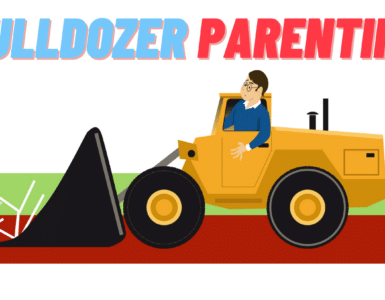People who don’t know much about gentle parenting tend to picture really annoying and unruly kids having public meltdowns with their parents either doing nothing or whisper-speaking to them like they’re teaching a yoga class instead of trying to get their toddler to stop screaming.
Gentle parenting does not mean letting your child walk all over you. It’s about communication, empathy, and building a strong emotional connection with your child. This parenting style has been trending a lot on social media with many parents, teachers, and child psychologists sharing their tips and tricks for gentle parenting.
But the rise in its popularity comes with many naysayers who think that those techniques only work with kids who are naturally chill and well-behaved and won’t work with kids who are high-energy terrors.
If you apply gentle parenting techniques correctly, even the most monstrous child will be calmer, use their words instead of screaming, and be more emotionally intelligent and self-aware so that they don’t continue to terrorize you and your family.
This viral TikTok from a parenting coach and mom named Marcela Collier highlights a good gentle parenting technique for dealing with a baby who slaps you in the face.
@highimpactclub #stitch with @miss.alani when kids hit out of nowhere. Gentle parenting for these cases? #gentleparenting #respectfulparenting #parentingwithunderstanding #innerchild
In the video, Marcela shows a mom at a restaurant holding her toddler who slaps her hard in the face to get her attention. The mom’s automatic instinct is to want to hit him back, but she holds back even though you can tell it’s really difficult for her.
For people who were raised in a nice, loving household, even the fact that this mom wanted to hit her kid back might seem alarming, but if you grew up in a home where people used force instead of talking things out, her reaction makes sense. The good thing is that she broke that generational curse, and held her anger back, realizing that her toddler is just being a toddler.
Marcela talks about the video saying “…see what happened, he hit Mom and as soon as she turned to him, he smiled. ‘I have my mom. I have her attention.’ That was the need. That was communicated in a very immature way of course because he’s a toddler.”
It’s important to know the reasons why your child is acting out. Understanding is the first step to changing any negative behavior and will also help you see things from your child’s perspective. Many times, younger kids don’t have the words to communicate their emotions, so they resort to physical aggression or screaming.
The parenting coach goes on to give advice for what to do in that type of situation, “What do you do from that? Manage your triggers, and then when it comes to the child replacement behavior…taking his little hand, ‘This is how you touch Mommy…’(Marcela gently touches her cheek with her hand) ‘And that’s how you called Mommy’s attention.’”
Kids don’t know their own strength and need to learn how to interact nicely with others. That’s why so many toddlers end up snatching toys and hitting other kids that they want to play with. Most of the time, they don’t want to hurt or upset that other child, but they don’t know how to play and need to be taught.
Marcella has a lot of great gentle parenting videos on her channel. She covers everything from nighttime meltdowns to toxic communication patterns from parents with teens. She presents these techniques in an engaging and easy-to-understand way, so I recommend checking out her channel if you have challenging kids.
Are you a gentle parent or interested in becoming one? Let us know in the comments!










Add comment